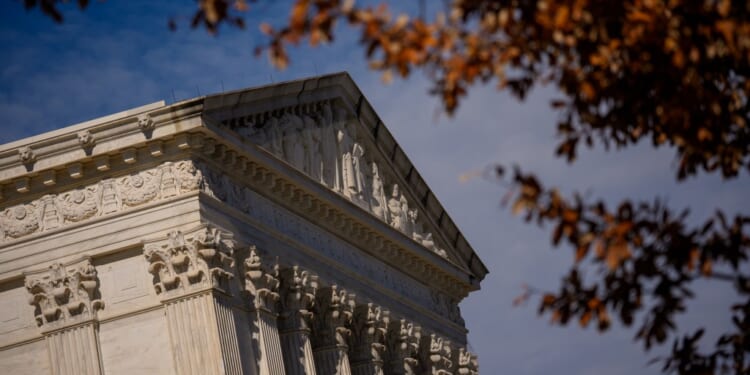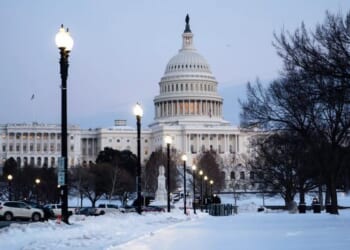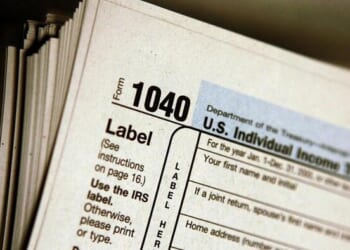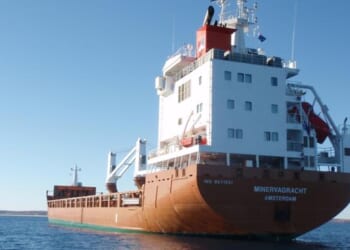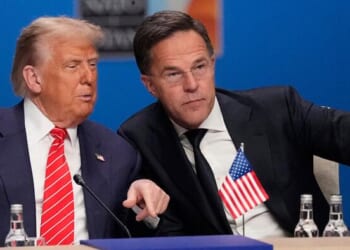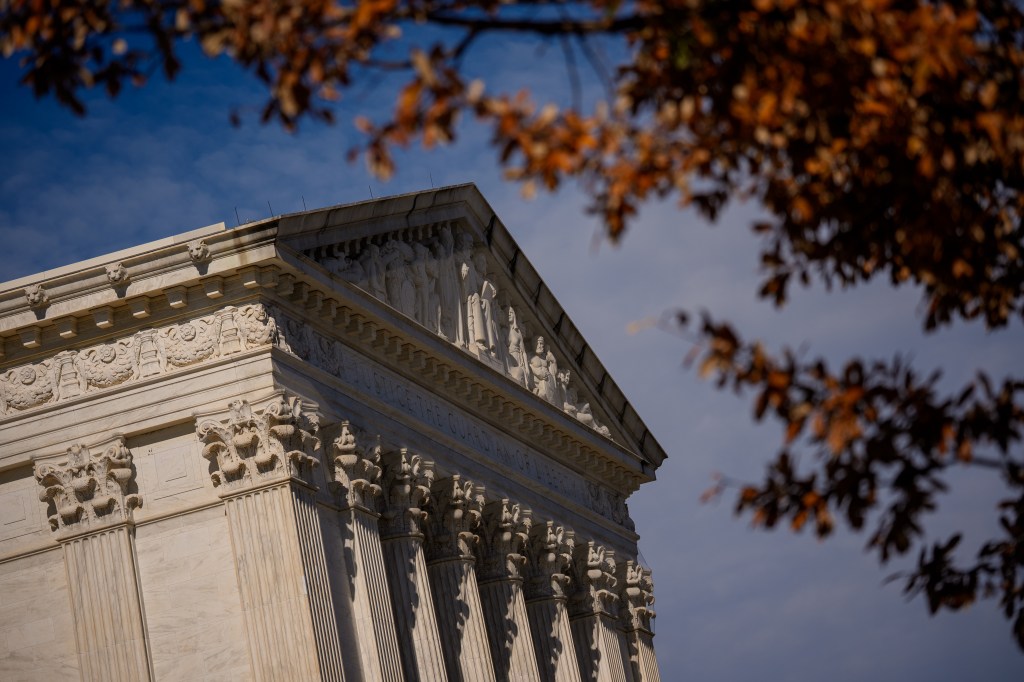
Lawyers for the coalition suing the government based their arguments on a curious fact in a case concerning tariffs: The text of IEEPA never mentions them. In fact, no previous president had used the law to impose tariffs since Congress enacted it 48 years ago. But starting in February, Trump declared that the law gave him the power to impose a baseline 10 percent tariff on most imported goods, with higher duties on imports from China, Mexico, and Canada.
IEEPA grants the president the authority to “investigate,” “regulate,” or “prohibit” imports in the event of a national emergency. The administration argued before the court that, because Trump had declared six separate national emergencies relating to illegal immigration, the cross-border drug trade, and trade deficits, he was able to impose taxes on essentially any import, from any country.
“To most people who work in trade and foreign commerce, this looks like a pretty easy case,” Timothy Meyer, a professor in international business law and expert in trade law at Duke University Law School, told TMD. But, he noted, that’s if the court views the case as primarily concerned with tax law. The administration’s hopes for victory, Meyer said, rested on a majority of justices viewing it instead as a foreign policy case, an area in which courts are generally loath to second-guess the president.
The administration’s lawyer, Solicitor General D. John Sauer, rested much of his case on the president’s foreign policy powers, as SCOTUSblog’s Amy Howe reported from the court:
Representing the Trump administration, U.S. Solicitor General D. John Sauer told the justices that IEEPA “confers major powers to address major problems on the President, who is perhaps the most major actor in the realm of foreign affairs.” “The phrase ‘regulate … importation,’” he added, “plainly embraces tariffs, which are among the most traditional and direct methods of regulating importation.”
All three of the court’s liberal justices were skeptical of this claim, along with Justice Neil Gorsuch, wrote Howe:
Gorsuch asked Sauer, on Trump’s theory, “what would prohibit Congress from just abdicating all responsibility to regulate foreign commerce, for that matter, [or] declare war to the President?” And a few minutes later, Gorsuch suggested that one problem with reading a law like IEEPA to give the president broad powers would be that it would create a “one-way ratchet toward the gradual but continual accretion of power in the executive branch” because, once the president had such powers, he could veto any effort by Congress to take them back.
Justices Amy Coney Barrett and John Roberts also seemed to doubt the government’s claims. But a victory for the plaintiffs might not last as long as they hope. If the court rules against the White House, it’s likely that sweeping tariffs will be imposed by hook or by crook. “You should assume they’re here to stay,” Treasury Secretary Scott Bessent said on Tuesday.
The president has broad powers to impose tariffs using laws other than IEEPA. “The president’s ability to impose tariffs going forward is not going to be limited by an adverse ruling,” in this specific case, Meyer said.
Section 232 of the Trade Expansion Act of 1962, which focuses on specific products such as lumber and pharmaceuticals, has few restrictions on the duration or level of tariffs that the president can levy. Section 301 of the Trade Act of 1974, which Trump used in his first term’s brief trade war with China, and has already imposed on Brazil as a backup plan for existing IEEPA tariffs, also allows the executive to target specific countries with tariffs. Section 338 of the Tariff Act of 1930, and Section 122 of the Trade Act of 1974, also give the president the authority to impose tariffs, Meyer noted. But the administration has so far declined to use them, likely because they impose limited restrictions on the president’s freedom to levy import duties.
Mary Carroll Dodd, who owns Red Scout Farm in Black Mountain, North Carolina, and signed onto the lawsuit, told TMD she became aware of the costs of tariffs after she noticed the prices of her supplies were rising, and asked her suppliers why that was happening.
“Our plastic bags that we use for our produce, those have gone up by about 10 percent; we use landscape fabric or woven ground cover, that’s gone up about 10 percent, our insect netting has gone up 10 percent,” Dodd said. “We have a walk-in cooler, and the AC unit replacement, which we replace every couple of years, has gone up by 50 percent.”
Such price increases can be debilitating for small businesses. “Those costs add up quickly when we’re already working with razor-thin margins,” she said.
For Rick Woldenberg, the CEO of Learning Resources, which makes educational toys for children, the decision to sue the government was based on his background in the law. “I’m a lawyer by background, and I have love and respect for the law and understand its role in what we recognize as our American way of life,” he told TMD.“I could not abide waiting for someone else to save me.”
Woldenberg’s company also didn’t have much time to wait—he told TMD that Learning Resources has had to take out a $14 million loan for projected tariff-related expenses over the next year.
But some smaller business owners are stuck thinking in even shorter time frames. Erik Bigglestone, who owns the board game store Games of Berkeley, told TMD that small brick-and-mortar stores often don’t have the resources to prepare for price hikes. Over the summer, many game suppliers warned retailers that prices would have to increase in the autumn, he said, and told customers to purchase as much inventory as possible before they did. But “a lot of businesses, ours included, weren’t in a position where we could afford to do that,” he said. Instead, his company has leaned into alternative means of competing with larger retailers, such as selling vintage figurines and rule sets.
As many businesses face risks from the U.S.’s new tariff regime, Trump has decided the country is staring down existential stakes. Others put it in less stark terms.
“I’m not interested in making Mr. Trump the bad guy, I don’t think it’s necessary,” Woldenberg said. “This is a question of what is the law?”

